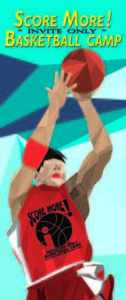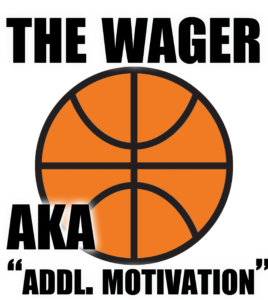 It has been a while since I last posted on this blog and I know that unless I post on a regular basis (at least once a week) there will be very little motivation for readers to come back and follow along.
It has been a while since I last posted on this blog and I know that unless I post on a regular basis (at least once a week) there will be very little motivation for readers to come back and follow along.
A keynote speaker friend of mine who is working on building his audience in the personal development world, started shooting some short motivational videos during a recent trip to New Hampshire with the goal of turning them into a regular feature on his Facebook page or other websites. Of course I encouraged him to do it… and to do it regularly. [It is always easier to give the advice than to follow it, right?]
The more I thought about how I could help him stick to creating & publishing his videos long enough to build some real momentum, the more I realized that I needed to do something similar… so I offered him a wager.
We would both commit to completing a post (me) or a video (him) every week for 52 weeks with the first one to miss a week to pay the other person $100. Then, if we got to the end without either of us missing, we would take the $200 and figure out a way to celebrate. We both liked the idea… although we did not want to wait a whole year to celebrate so we dialed it back to 26 weeks… STARTING TODAY.
So this is my first post… about the contest… but also about how I will motivate myself and what methods I will put in place to make sure my ideas make it from the concept stage to the publication stage (and, if they are good ideas… the implementation-by-others stage).
½ Done is “NOT Done”
True productivity requires something to be produced! If you don’t finish something, it is as if you did nothing. Not sure who said it, but it is true, “Compete is better than perfect”.
I’ve been doing lots of research, reading and thinking over the past few months but aside from creating the blog (and some graphics and some video intros), I don’t have the quantity of content that I feel I need.
Why do I need it?
What’s my real goal?
My goal is to move up the basketball coaching career path. My next step is a varsity high school team and while I have done more coaching (fairly successfully I might add) in the past year or so, I have also found that most coaching jobs are filled by coaches that have built up a reputation in the basketball (and athletic director) community. This blog is one attempt to showcase my philosophies & knowledge of basketball and position myself as someone worth hiring to coach your school’s team. That’s why I need to complete this bet !
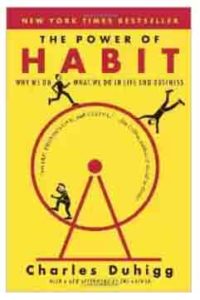 Next Question: How am I going to do it?
Next Question: How am I going to do it?
If you have not read the book “The Power of Habit” by Charles Duhigg, you need to get a copy now. Here is the link to the Amazon page so you don’t have to look it up.
Why did I say that? Because our life is ruled by habits. Good, Bad, deliberately created or ingrained long ago it doesn’t matter. Habits are how we get stuff done and contrary to what most people think, there are some tricks to changing your habits into ones that support your goals.
I won’t go into all the details (you really need to buy Charles’ book), but the simple way to look at habits is 1) they get replaced, not eliminated and 2) they follow a structure that you can hijack. Anyone who has tried to “stop eating” something knows that unless you replace a bad habit with a good one, the vacuum created by trying to eliminate a habit actually makes it harder to “not do it”.
Quick example…
If your “go to snack” at 2pm is a chocolate bar and you want to lose weight, then you need to find something that will replace that snack with a healthy alternative. Maybe nuts or popcorn. The key is to recognize the habit and replace what makes it bad with something better.
Hijacking a Habit…
The process of hijacking a habit is very similar. Habits have multiple parts (explained better in the book) where you can mold the habit into something that supports your goals. For example, a habit has a Trigger, an Action and a Result or Reward. If you recognize the Trigger that gets your habit started, you have a chance to hijack the trigger and point it toward a better action. Alternatively, if you look at the other end and identify the Result or Reward that you are getting you may be able to think of an alternative Action which would yield a similar result but one that is more in line with your goals.
It seams simple but like most things in life, we rarely think about how our habits are shaping our lives. For me, I have part of a good habit… I take a half hour every morning, after making myself some tea, to meditate / think about ideas that I want to implement. Usually I can come up with at least 3 and then my day has some creative energy to use as fuel.
The problem comes in when I have the ideas laid out, but not ready to publish. My change will be to tie my lunch break into a “get on the computer and type” session. It isn’t really a question of ability… I can type pretty easily… I just need to make it happen and it is very likely that I will be creating much more than one post per week.
Where the bet comes in is when life gets too busy or distracted or whatever… it is like a backstop or brick wall that says “You will not go to sleep without publishing something.”
[As you might notice, this post was released very late on Wednesday, our posting deadline, so the bet is already serving its purpose.]
Additional Motivation…
What other forms or methods of motivation can I employ? I am sure that I will get a sense of accomplishment with each new post and maybe the comments from readers like you (hint, hint) will inspire me to tackle new topics or try new ways of providing value to the readers of my basketball coaching blog. Since I have not accomplished a whole lot just yet, at least as far as the blog goes, it is hard to see how this will be a large motivation but I will keep an open mind. Maybe I will build a “momentum of accomplishment” as my string of weekly posts grows… tune in to find out !
One last piece of Motivation… you !
I’ve always found that a public commitment is a great form of motivation. Even if the only person who reads this post is the person who I have the bet with, it is still out there and I want to win. Besides, that’s the title of this blog, “Building the Winning Mindset” so a public commitment to win this 26 week bet had better hold up… especially if you are going to believe all the other ideas I will be presenting around the topic of Winning!
How can you help?
I know you want to help, right? To be perfectly honest, I could use your help. I want to deliver articles (or videos or interviews or whatever) that are of interest to you ! What are the biggest challenges you are facing as a basketball coach? As an Athletic Director who hires (or fires) basketball coaches? What questions need answers? I am here to help and I read all comments on this blog. (Even the spam ones for “male enhancement” or “jump higher in 7 days”.) I look forward to hearing what you are encountering and what is working (or not working) for you!
What’s next?
Over the next 6 weeks I will be working on pulling together my Score More Basketball Camp and will probably try out some ideas here on the blog. In particular, the section of the camp that deals with Mind Control and a Winning Attitude will definitely be of interest to my blog readers, right?
Keep Your Focus !


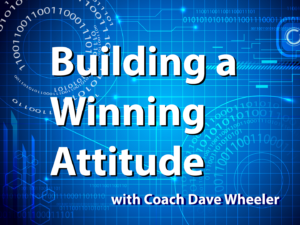 What does it take to become a winner? Many people talk about a “Winning Attitude” but how many actually practice it? How many of us even know what goes into a winning attitude?
What does it take to become a winner? Many people talk about a “Winning Attitude” but how many actually practice it? How many of us even know what goes into a winning attitude?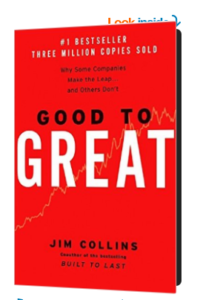
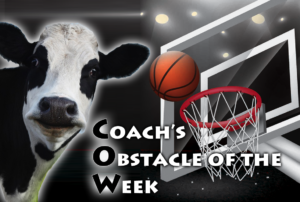 One of the biggest pet peeves I have as a coach is the
One of the biggest pet peeves I have as a coach is the 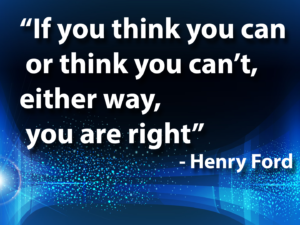 As I mentioned before, one great example is “I can’t”. Whenever you catch yourself saying, or thinking, the words “I can’t”, immediately STOP and take another look at the situation. When you say “I can’t” that implies that you
As I mentioned before, one great example is “I can’t”. Whenever you catch yourself saying, or thinking, the words “I can’t”, immediately STOP and take another look at the situation. When you say “I can’t” that implies that you 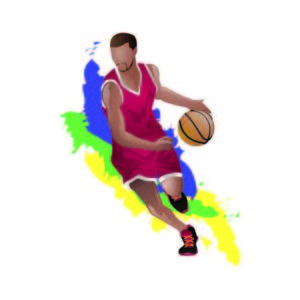 What is your signature move on the basketball court? Do you even have one? Or are you still learning the game and could benefit from adding a few more moves?
What is your signature move on the basketball court? Do you even have one? Or are you still learning the game and could benefit from adding a few more moves?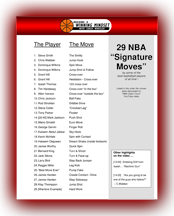
 It has been a while since I last posted on this blog and I know that unless I post on a regular basis (at least once a week) there will be very little motivation for readers to come back and follow along.
It has been a while since I last posted on this blog and I know that unless I post on a regular basis (at least once a week) there will be very little motivation for readers to come back and follow along. Next Question: How am I going to do it?
Next Question: How am I going to do it?